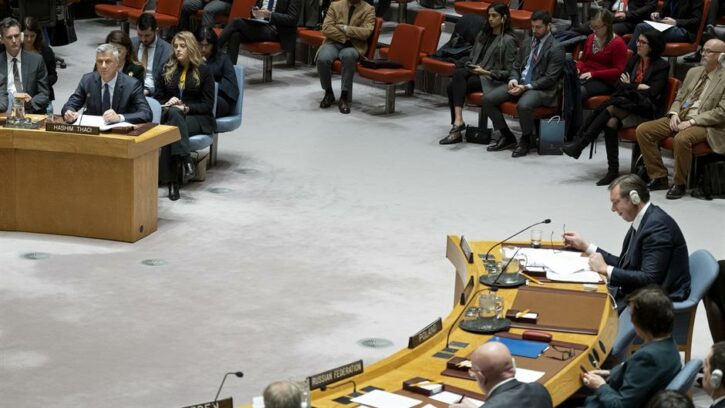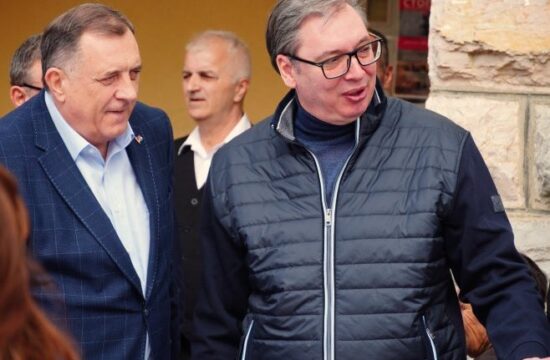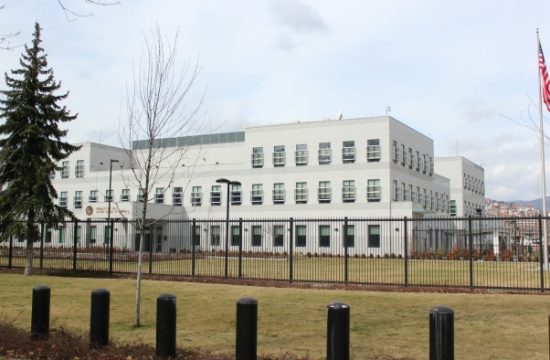
The Presidents of Serbia and Kosovo, Aleksandar Vucic and Hashim Thaci traded accusations over the latest crisis in Belgrade-Pristina relations at Monday’s session of the UN Security Council.
The session was called at the Serbian president’s request following Pristina’s decision to adopt laws and start the process of transforming the Kosovo Security Forces (KSF) into a full military formation.
Vucic called the UN to play a greater role in the Belgrade-Pristina dialogue. “We have nothing against the dialogue under European Union auspices but we need greater UN engagement in the process and we have to see Pristina revoke some measures,” he said. The dialogue will be continued as soon as Pristina revokes the “irresponsible decision on tariffs”, he said.
Vucic said that Serbia had invested huge efforts into preserving the peace and stability of the Western Balkans, including not responding to what he said were provocations from Pristina, making concessions and meeting all obligations under the 2013 Brussels agreement. “Pristina had one obligation, the forming of the Community of Serb Municipalities (CSM) and it failed to do that and has no intention of doing it in the future,” he said.
The Serbian President asked what right Pristina has to form an army since, according to him, that possibility is not allowed in any document, including the Kosovo Constitution.
Responding to Thaci’s accusations of ethnic cleansing, Vucic said that the Albanian population had grown. “There were 1.4 million Albanians in Kosovo, now there are 1.7 million. There were 220,000 Serbs, today there are 105,000 or 106,000. Those are the facts,” he said.
Thaci said in his address to the UN SC that the Serbian state apparatus “had killed 35,000 civilians in Kosovo and raped some 20,000 Albanian women”, adding that the Milosevic regime forcibly expelled a million Albanians.
Thaci said that the forming of a Kosovo army was nothing out of the ordinary and was not counter to UN SC resolution 1244, the constitution, the Ahtisaari plan or international law. “What happened is a completely normal decision and if Kosovo made any mistake it was waiting five years to form an army,” he said and added that the debate in the UN SC is not about Belgrade having a problem with the Kosovo military but with Kosovo as an independent and sovereign state.
“That is why a dialogue between our two countries is crucial. Without a dialogue we will be two countries producing endless drama for domestic and election purposes,” he said and added that crisis situations will continue happening until a final agreement is reached to normalize relations between Kosovo and Serbia.
The Kosovo president said an agreement with Serbia should not include ethnic borders and an exchange of populations but progressive mutual recognition of two multi-ethnic states.




